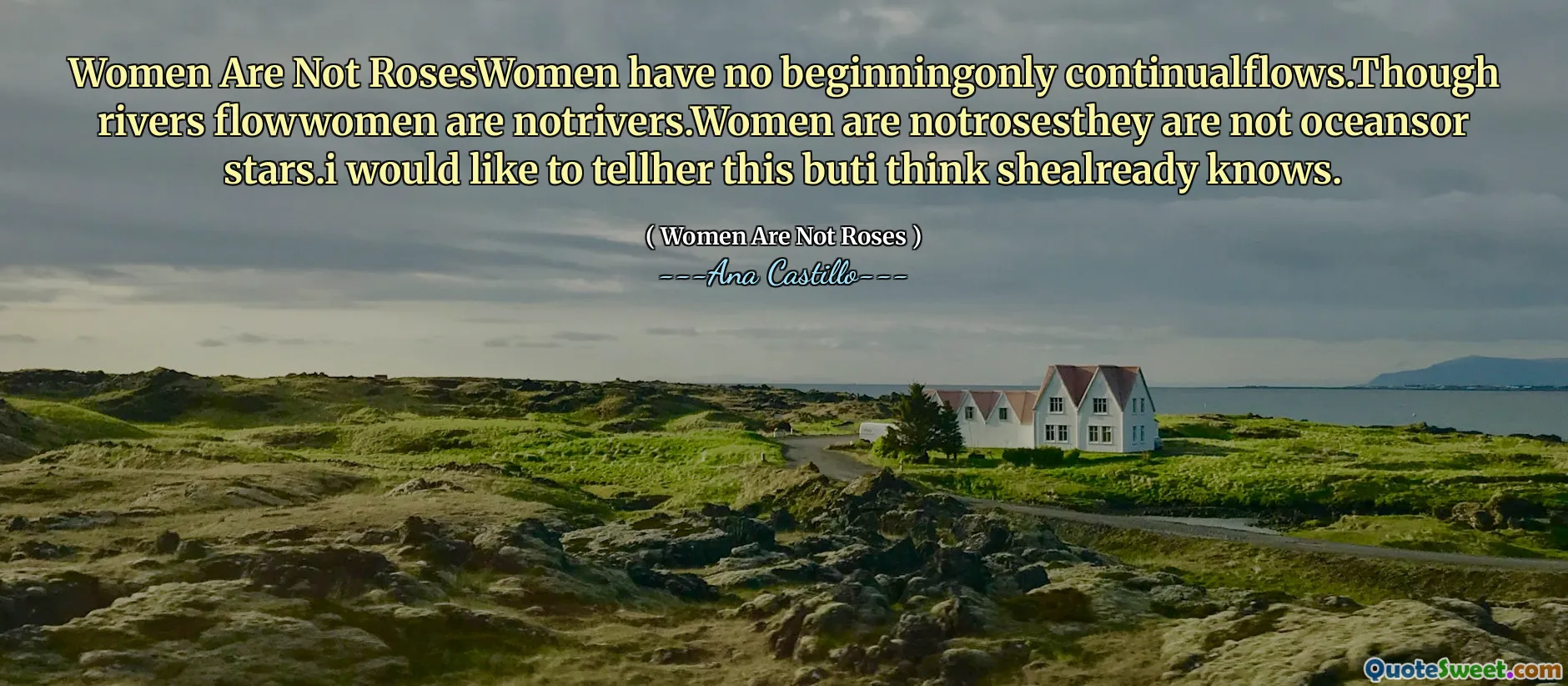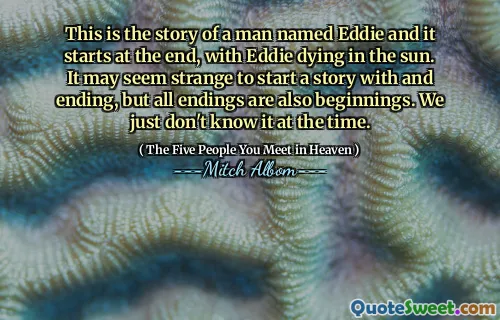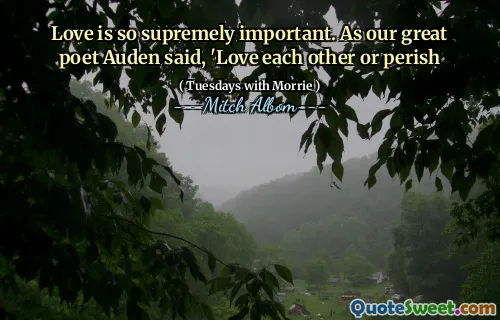
Women Are Not RosesWomen have no beginningonly continualflows.Though rivers flowwomen are notrivers.Women are notrosesthey are not oceansor stars.i would like to tellher this buti think shealready knows.
This evocative quote explores the unique and complex nature of women, emphasizing that they cannot be confined by or reduced to natural metaphors like roses, rivers, oceans, or stars. The poet suggests that women possess an ongoing, fluid existence that cannot be summarized or fully understood through traditional symbols of beauty or vastness. Unlike rivers or oceans, which are bounded and measurable, women are described as continual flows—dynamic, evolving, and inherently multifaceted. The line 'Women have no beginning only continual flows' implies a timeless, ongoing essence that defies simple origins or fixed definitions. Similarly, emphasizing that 'women are not roses' separates their identity from fleeting beauty, fragility, or superficial appearances often associated with flowers. The metaphors serve to challenge stereotypical perceptions, urging one to recognize the depth, strength, and complexity inherent in women. The closing sentiment—'I would like to tell her this but I think she already knows'—resonates with the idea that self-awareness and understanding of one’s true nature are often intrinsic. Women possess an innate knowledge of their own being that transcends societal labels and external limitations. Overall, the quote celebrates the fluid and profound identity of women, advocating for recognition beyond mere appearance or simplistic metaphors, acknowledging their continuous evolution and innate depth.






